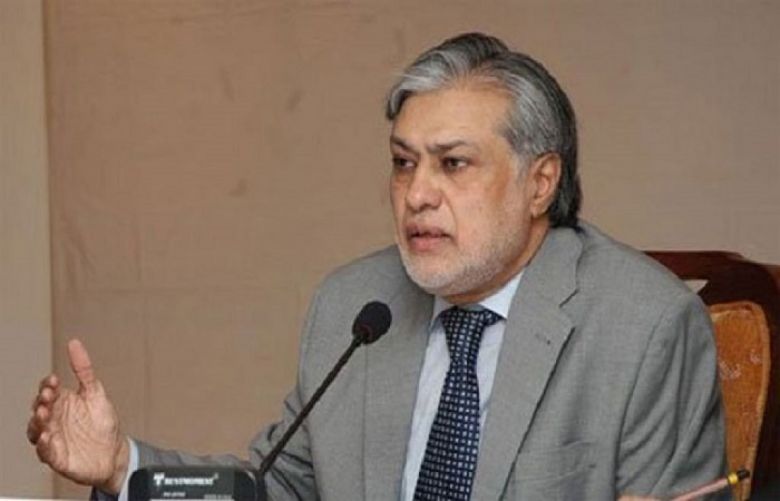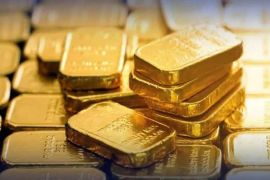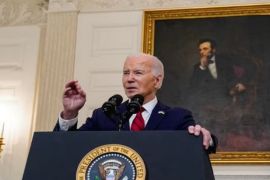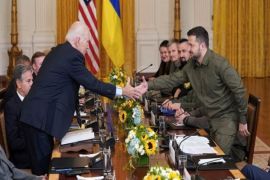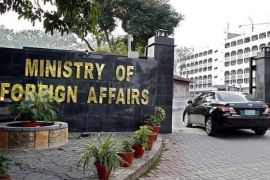Finance Minister Ishaq Dar has said that he has discussed a proposal with the World Bank to illuminate entire Balochistan province with solar energy and the bank’s response was positive.
Speaking at the Pakistan Embassy’s economic forum on Monday night, the minister also acknowledged that the Chinese companies investing in the China-Pakistan Economic Corridor (CPEC) would get huge tax breaks but claimed that “this calculated decision” would not hurt the country’s economy.
“I discussed (the proposal) to illuminate entire Balochistan with World Bank President Jim Yong Kim and his response had been positive,” said Mr Dar, who attended the World Bank Group’s spring meetings in Washington this week.
“I invited him to visit the province and he agreed to do so. I also said that we would like him to inaugurate the first project when it was ready,” he said. “I think things will go positively.”
Mr Dar told the forum’s mostly Pakistani-American audience that the PML-N government was close to ‘turning Gwadar into Dubai’ when the country faced the coup in 1999 which derailed the entire process.
“We wanted to build a parallel Middle East, from Karachi to Gwadar, but the coup prevented us from doing so,” he said.
The minister agreed with a Baloch member of the audience that had Baloch been given their rights, the province would have attained its potentials and there might not have been the current insurgency.
The government, he said, was working on various proposals for economic integration of Balochistan with the rest of the country and hoped the CPEC would bring in a new opening for the province.
Responding to another question, Mr Dar claimed that the government had evaluated “the cost and benefits” before making a calculated decision to allow tax breaks for Chinese companies.
“We keep hearing these negative sounds, but this is a bilateral arrangement,” the minister said. “EU has concessional tariffs for its members. The US offers similar breaks to its neighbours. What’s wrong if we give similar concessions to China?” he asked. “There are no free lunches,” he said. “They are investing up to $56bn and in return, we have offered some breaks.”
The minister disagreed with a participant who suggested that CPEC’s benefits were “drummed up”. Such talks were aimed at “undermining the CPEC concept,” said the minister, while insisting that China was a great friend.
“CPEC is basically a vision for the entire region, not just a bilateral arrangement, and will soon expand to all neighbouring countries,” he said.
“These concessions are given in lieu of $56bn Chinese investment in CPEC. It’s a fiscal decision of the country, and it has been done elsewhere too,” Mr Dar said when asked about reports suggesting that the Chinese companies would be getting exemptions worth Rs150bn, annually.
He also said that the concept of CPEC was largely misunderstood.
“China is not giving this money to the government. Its financial facilities are provided to private sector for projects in energy sector and infrastructure development.”
When reminded of the concern expressed in a World Bank report that populist policies close to the elections could hurt the national economy, the minister said the government had no plan to do so. The government, he said, was continuing with the financial discipline and structural reforms that had turned around the national economy.
“We don’t believe that just for winning elections we should lose the gains made during the last few years. This is not the policy of the government. Let me assure you that just for being popular we will not take any such measures in the coming budget,” he said.
Mr Dar also claimed that “by 2018, loadshedding will be history,” adding that the government was rapidly completing the projects it had undertaken.
To another question about the World Bank’s concerns that Pakistan’s growth could be affected by a strong rupee, he said it was a sign of good economic policy and there’s nothing the government and the State Bank could do to change this. Pakistan followed an open market policy, he said.
“Investors are happy that our currency is stable. In the Middle East currencies have been stable for many decades yet their economies are not adversely impacted, so why would Pakistan’s stable currency harm its growth?” he asked.
The minister acknowledged that a strong rupee and increasing oil prices had caused a decline in Pakistan’s exports but said the government was offering incentives to correct this.

